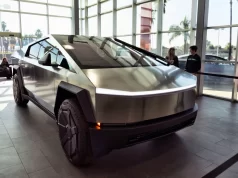Electric cars are often touted as a green alternative to conventional gasoline-powered vehicles, but are they really as eco-friendly as they seem?
While electric cars may have some benefits, such as zero tailpipe emissions and higher fuel efficiency, they also have a number of drawbacks that make them bad for the environment.
10 Reasons Why Electric Cars Are Not As Green As You Think
#1. Electric cars have a high carbon footprint during their production
The manufacturing of an electric car is more carbon-intensive than a regular car, mainly due to the battery. According to a study by the Union of Concerned Scientists, an electric car produces about 15% more emissions than a comparable gasoline car during its production.
Another study by the International Council on Clean Transportation found that the production of a mid-sized electric car emits about 8.8 tonnes of CO2, compared to 5.6 tonnes for a similar gasoline car.
#2. Electric cars rely on electricity that may come from fossil fuels.
The environmental impact of an electric car depends largely on the source of electricity that charges its battery.
In many countries, electricity is still generated from coal, natural gas, or other fossil fuels, which emit greenhouse gases and air pollutants.
According to the U.S. Environmental Protection Agency, the average emissions rate of electricity in the United States in 2019 was 0.92 pounds of CO2 per kilowatt-hour.
This means that an electric car that consumes 30 kWh per 100 miles would emit about 27.6 pounds of CO2 per 100 miles, compared to 24.3 pounds for a gasoline car that gets 25 miles per gallon.
#3. Electric cars use rare earth metals and other materials that are scarce and harmful to extract.
The batteries and motors of electric cars require rare earth metals, such as lithium, cobalt, nickel, and neodymium, which are limited in supply and have negative environmental and social impacts.
The extraction of these metals involves mining, refining, and transporting processes that consume large amounts of energy, water, and chemicals, and generate toxic waste and emissions.
Moreover, the mining of these metals often involves human rights violations, such as child labor, forced labor, and armed conflicts, especially in countries like the Democratic Republic of Congo, China, and Bolivia.
#4. Electric cars have a shorter lifespan and lower resale value than gasoline cars.
The batteries of electric cars degrade over time, losing their capacity and performance. This reduces the range and efficiency of the car and may require costly replacement or repair.
According to a study by AAA, the average annual depreciation rate of an electric car is 56.6%, compared to 36.7% for a gasoline car.
This means that an electric car loses more than half of its value in five years, making it less attractive for buyers and sellers.
#5. Electric cars create more tire and brake wear particles than gasoline cars.
Tire and brake wear particles are a major source of microplastic pollution, which can harm wildlife and human health.
According to a study by Emissions Analytics, an electric car produces about 8.8 grams of tire and brake wear particles per kilometer, compared to 5.8 grams for a gasoline car.
This is because electric cars are heavier and have more powerful acceleration and braking systems than gasoline cars, which increase the friction and wear on the tires and brakes.
#6. Electric cars pose a higher risk of fire and explosion than gasoline cars
The batteries of electric cars contain flammable and explosive materials, such as lithium-ion, which can catch fire or explode when damaged, overheated, overcharged, or short-circuited.
According to a report by the National Transportation Safety Board, there were 38 incidents of electric car fires in the United States between 2011 and 2019, resulting in 18 injuries and one death.
Electric car fires are also harder to extinguish and more likely to reignite than gasoline car fires, requiring special equipment and training for firefighters.
#7. Electric cars generate more noise pollution than gasoline cars
Electric cars are often praised for being quieter than gasoline cars, but this is only true at low speeds and low frequencies.
At high speeds and high frequencies, electric cars produce more noise than gasoline cars, mainly due to the aerodynamic and tire noise.
According to a study by the University of California, Riverside, an electric car generates about 69.5 decibels of noise at 50 miles per hour, compared to 68.7 decibels for a gasoline car.
Noise pollution can cause stress, annoyance, sleep disturbance, and hearing loss for humans and animals.
#8. Electric cars have a lower range and longer charging time than gasoline cars
One of the main drawbacks of electric cars is their limited range, which means they can travel less distance on a single charge than gasoline cars can on a single tank of gas.
According to the U.S. Department of Energy, the average range of an electric car in 2020 was 259 miles, compared to 412 miles for a gasoline car.
Moreover, electric cars take longer to recharge than gasoline cars take to refuel, which can be inconvenient and time-consuming for drivers.
According to the U.S. Department of Energy, the average charging time of an electric car in 2020 was 8 hours, compared to 5 minutes for a gasoline car.
#9. Electric cars have a higher upfront cost and maintenance cost than gasoline cars
Electric cars are more expensive to buy than gasoline cars, mainly due to the high cost of the battery.
According to Kelley Blue Book, the average price of an electric car in 2020 was $49,914, compared to $37,876 for a gasoline car. Electric cars also have higher maintenance costs than gasoline cars, mainly due to the battery.
According to Edmunds, the average maintenance cost of an electric car over five years is $4,758, compared to $3,571 for a gasoline car.
#10. Electric cars have a negative impact on the grid and the power sector
Electric cars increase the demand for electricity, which can strain the grid and the power sector, especially during peak hours and seasons.
This can lead to blackouts, brownouts, and higher electricity prices for consumers and businesses.
Electric cars also affect the stability and reliability of the grid, as they introduce fluctuations and uncertainties in the load and supply of electricity.
This can cause voltage and frequency deviations, power quality issues, and grid congestion, which can damage the grid and the power sector equipment and infrastructure.







